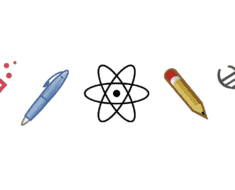
Wrike
Working as a project manager is a challenging and varied role that can be incredibly rewarding. There are a certain number of skills required, both technical and personal, to really succeed in project management. If you are considering advancing your career, or you know that project management is your end goal, here are a few of the basics of becoming a project manager, what skills you might need, and what your daily tasks may look like.
What do they do?
In general, project managers are responsible for overseeing and managing all six aspects of a project. These are:
- Initiation
- Definition
- Design
- Development
- Implementation
- Follow up
The projects will have definite outcomes, time limits, and constraints and must stick within the agreed budget. The daily tasks of a project manager can vary depending on a large range of factors, such as the type of project and what phase it is at. Examples of tasks and duties include:
Planning and assigning
As a project manager, you will need to understand what tasks need to be undertaken in order to complete the project and be able to assign these tasks to the correct person. One popular way of doing this is through the use of Gantt charts, which are bar charts used to schedule and track the progress of a project over a period of time. They are customizable and adaptable, meaning you can include different components and make them as detailed as possible, color code them and incorporate calendars, among other functions.
Managing teams
As well as managing the project, you will also need to manage the team working on it. This is where certain personal skills are very useful, such as leadership, communication, conflict resolution, and adaptability. You will need to be able to encourage and motivate your team and make sure that the work being produced is to a high standard and is being done in a timely manner.
What skills do you need?
To work in project management, you will need a number of different skills and experiences. Some are hard skills, which are industry or job-specific skills. Other ones are soft skills, which are transferable people skills that help you excel in any workplace. Useful skills for project management include:
- Communication
- Leadership
- Teamwork
- Conflict resolution
- Problem-solving
- Understanding of health and safety
- IT competence
- Control and monitor budgets
- Manage resources
- Co-ordinate work carried out by different people or organizations
There are typically two different ways to become a project manager. One is to study for a project management degree, and the other is to work your way up the project management career ladder. Both require a lot of skill, knowledge, and experience in managing projects and groups of people, as well as technical skills and transferable people skills. Project management can be an exciting and challenging job role, and if you enjoy working with people, leading teams, organizing, and a varied daily set of tasks, project management could be the perfect role for you.









































